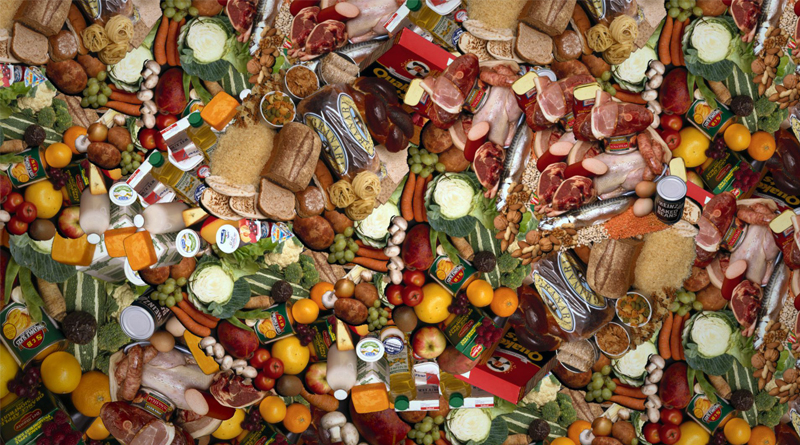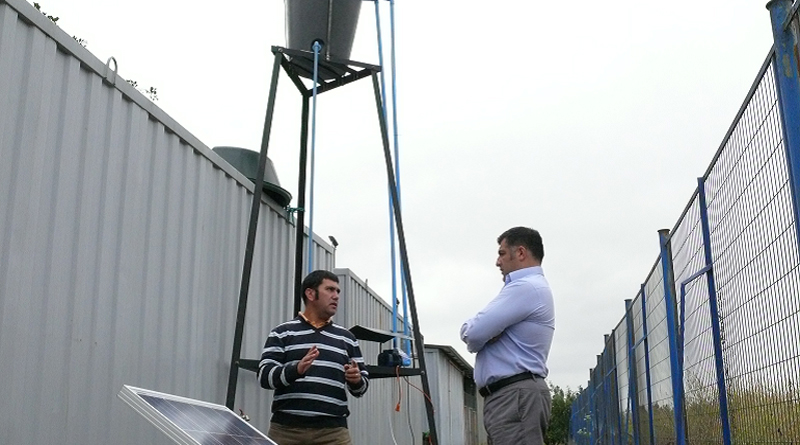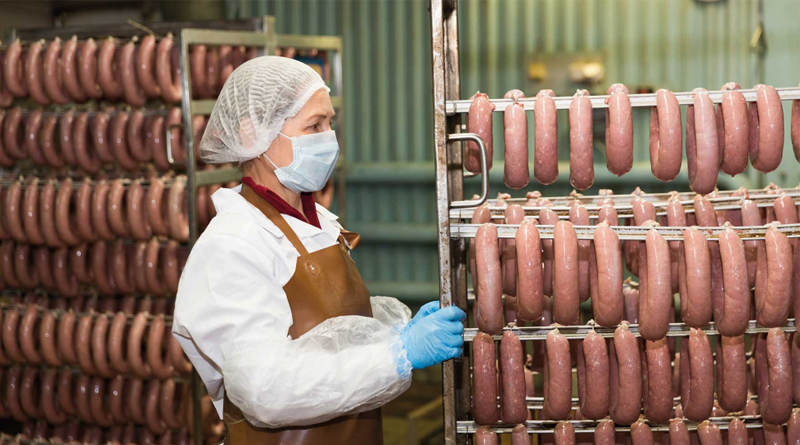Focusing on the notion of a circular rather than the more traditional linear economy will be the only way to make significant strides in countering food waste. This is according to Toine Timmermans, Director of the United Against Food Waste Foundation and coordinator of EU project Refresh, who stresses that a complete rethink of future food systems and supply chains is necessary.
“The topic of food waste starts with a linear economy, since food waste is a symptom of that model,” Timmermans notes. “It’s not a problem, it’s a symptom. In order to solve it, we need to rethink our future food systems and supply chains. It is also important to build a narrative of how a future food system should look, and we can base this on circular economy principles,” he explains, in an interview with FoodIngredientsFirst. “It’s a whole new way of seeing the future of our food economy and what a system like this could look like,” he adds.
Food waste is a long-running topic in the industry and 2019 is touted as the year suppliers must step up their game. In March 2018, an initiative called “United Against Food Waste” launched in the Netherlands, consisting of a number of companies, research institutes, civil society organizations and government bodies, including Wageningen University & Research. Their aim is to reduce food waste in the Netherlands by 50 percent in 2030, which could be achievable by focusing on consumer and retail waste and removing the symptoms from the supply chain itself. To achieve this, the foundation has set up voluntary agreements on how to solve sustainability and food waste issues in five countries.
Consumers have high expectations of corporations and brands to lead the way in securing a sustainable future. Companies are responding more strongly to this than ever before through long-term commitments as well as market actions and innovations across both product and packaging. This includes waste reduction through upcycled ingredients and post-consumer recycling for a healthier planet.
For both consumers and companies, “Going Green” is now a given and showing a company’s green colors is something that today’s “mindful consumer” expects more frequently. Consumers are more aware than ever about the role that food production plays in climate change and technology is helping to reinforce this message.
Tomorrow’s challenges
Offering greener solutions will be essential to sustainable food supply chain, amid challenges around climate change and feeding the world’s growing global population. By 2050, there will be nearly 10 billion people on the planet. Tackling food waste will be one of the key platforms when it comes to future innovation in sustainability. Whether cutting out waste in the supply chain or at the retail/consumer front, huge gains must be achieved. But it can also be about reusing traditional waste ingredients in a new way for maximum efficiency.
The Dutch Taskforce Circular Economy in Food (Dutch National Platform) was launched during the National Food Summit in the Netherlands (26 January, 2017). It currently comprises 25 members from across the food supply chain, from SMEs to food multinationals, and also features members from civil society and public organizations.
Toine Timmermans, Director of the United Against Food Waste Foundation
Timmermans explains that the group is coordinating with partner group Refresh, to set up voluntary agreements on how to solve sustainability and food waste issues. “We have piloted this in five countries: the Netherlands, Germany, Hungary, Spain and China and the Netherlands is the first one to serve the legacy. It’s no longer a project, it’s now an organization,” he says
The “Refresh” program is funded by the European Commission (EC), based on 2020 funds, as well as from private sources.
By 2030, the aim is to reduce food waste in the Netherlands by 50 percent. Timmermans says that this is achievable by focusing on consumer and retail waste and removing the symptoms from the supply chain itself.
“These goals are based on the commitments of businesses and need to be supported by governments and consumers,” he notes.
Since 2009, there have been initiatives put in place to target food waste. But until now, although several have been successful and have been able to scale up, overall the progress has been limited.
“Knowing that the momentum on the topic has increased over the years puts us in good stead and will likely boost our effectiveness. With this key difference, we will build on a systemic and inclusive approach,” he reveals.
Food waste today is much more driven by discussions around climate change and can be part of a broader global movement. Companies, therefore, see an opportunity here too. They can be sustainable and they want to be part of the success story, says Timmermans. “For us, we want to be part of this movement that will ultimately offer a circular economy and save the planet.”
With strong links between packaging and food waste in the industry, the Netherlands has made progress in its sustainability journey. “There is a definite acceleration of these pressing industry issues at the moment, due to the attention on the topic in the past two years. The Netherlands has a system in place that makes it possible for us to collaborate with other organizations and I think that’s the key driver. We are probably better suited to build voluntary agreements than some other countries.”
According to Timmermans, Norway, Denmark and the UK are also making tremendous progress in this field and this will encourage other countries to follow suit. “There is an interest across Europe to build a voluntary agreement or commitments of a coalition. We are here to be a part of the next step and hopefully, other countries supported by the EU will implement a model that suits them, given their food culture and their way of doing business.”
“We are working with Champions 12.3 Coalition which is active globally, from the US and Canada to emerging countries in Africa and Asia. Australia has recently launched the largest program on food waste reductions currently running in the Fight Food Waste CRC,” he continues. “Companies can benefit from this where a systematic approach is needed.”
“Making small changes will, in turn, have a big impact,” Timmermans adds. “It is now becoming a much more serious game.”
United Against Food Waste, also known as Samen Tegen Voedselverspilling in Dutch, aims for 100 companies to be connected as stakeholders to the organization at the end of 2019.
“We are launching a consumer campaign on March 4 and that will be a national campaign based on creating a positive social norm, working with influencers and novel ways of trying to change behaviors with consumers and in the food industry. We will also launch a B2B program on March 12, which will aid in showing producers, manufacturers, retailers and foodservice companies that they can make positive changes to food waste.”
This also shows that we are not only focusing on a small target anymore, but we are focusing on a systematic approach that is easily scalable, notes Timmermans. “Until now, many campaigns have shown food waste as a problem, not as a symptom – but it starts with taking responsibility from business, as they can also change the game.”
Timmermans says that it’s a “work in progress and there are goals in place to make it become a reality and success by 2030.”
“We have our agenda in place and more and more companies are taking action alongside this initiative. This basis of a voluntary agreement means that each company or organization involved reports transparently about their processes and the amount of food waste that they have. That’s an important starting point,” he continues. “We need to be aware of how much food is actually being wasted, it’s always about: Target, Measure, Act, and that mantra is important in any food waste program, whether you are a consumer or a big business – that’s a principle that works best.”
In the end, prevention should come first, and there can be more structured solutions that create awareness in the supply chain, Timmermans claims. “We aim to be part of this solution with a systemic approach – but working on prevention is the best possible cure,” he concludes.
Source: Food Ingredients First









